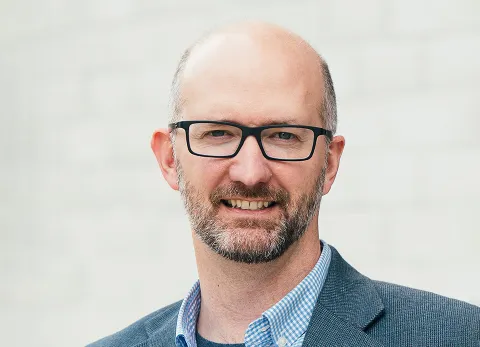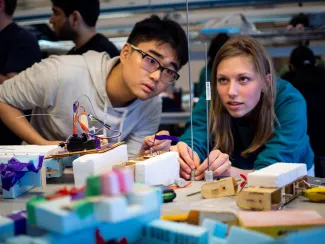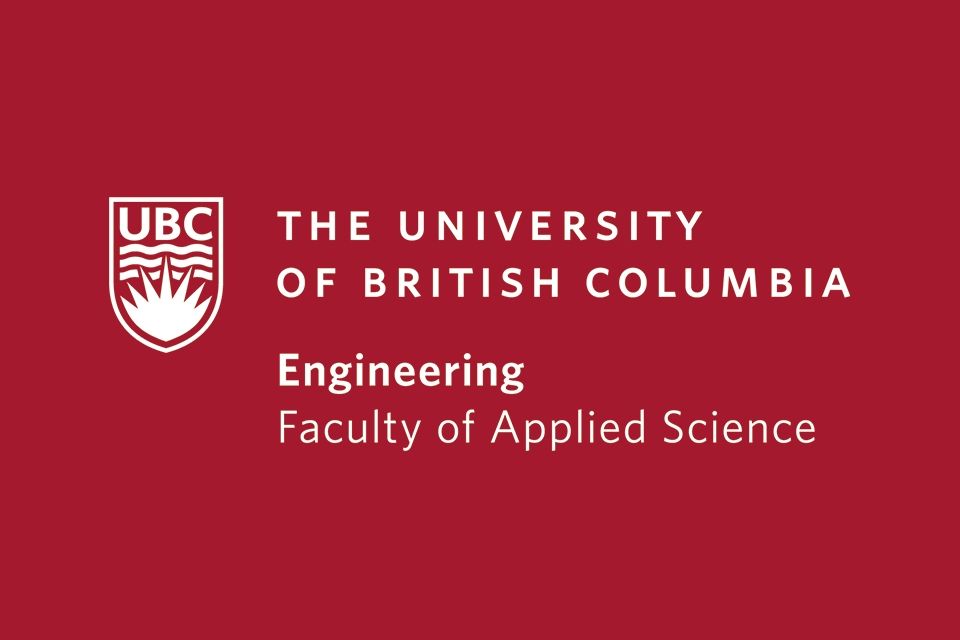“My research helps industry figure out the practical, immediate things we can do to improve emission.”

- Program:
- Campus: Vancouver
Education: Dr. sc. Techn. (ETH Zurich), MSc and BSc (University of Alberta)
What led you to engineering, and to mechanical engineering in particular?
When I was a kid, I liked to tinker with things – bikes, vehicles, whatever was around – and I was fortunate enough to have access to the tools and space to do so.
I realized at a certain point that as an engineer, I could go beyond tinkering to designing and building things from the outset.
When I went into engineering, I was certain I would end up designing mechanical components. But I found a thermodynamics course very intriguing, and a research project over one summer got me interested in research. As an academic researcher, it’s also exciting to have the freedom to investigate ideas and develop solutions without being solely profit-driven.
Why is this research important?
As a society, we have to find ways of mitigating climate change and reducing greenhouse gas emissions.
Long term, that will absolutely include electrification and the use of fully renewable energy sources such as biofuels or hydrogen. Yet we must do things right now and make use of fuels that are immediately available to us so that we can accelerate the energy transition. Natural gas, renewable natural gas and biofuels can play an important role, but we need to know how to use them effectively.
My research helps industry figure out the practical, immediate things we can do to improve emissions.
For example, if we switch from a diesel fuel source to natural gas, we reduce carbon dioxide emissions, but there might be higher methane emissions, which is problematic given that methane traps more heat per molecule than carbon dioxide. We have developed a methane sensor that we can use in the field to measure any methane emissions.
We can then share this data with our partners to make sure that shifts in fuel source or operational decisions are achieving the reductions in greenhouse gases that we need.
Why should students choose UBC?
UBC is a recognized leader in sustainability research, and that leadership permeates everything, from our focus as teachers to how our facilities are operated, the fuel they use for heat and hot water, and how the campus itself is a living lab for sustainability research.
This is also a very inclusive and equitable university that embraces the diversity of the various cohorts of students, faculty and staff in our interactions and collaborations and provides a unique place to study.
On top of that, we have a very strong engineering and co-op program with long-established ties to industry. Of course, I am particularly biased towards mechanical engineering, which I think is a great choice and offers strong fundamental skills and considerable flexibility in terms of career pathways.
At UBC Vancouver, students who choose mechanical engineering start with MECH2, which is a common second year program.
This enables MECH students to gain a solid understanding of the fundamentals of mechanical engineering, develop a tightknit cohort and learn which areas they are most interested in as they head into their specializations, be that general mechanical engineering, aerospace, biomechanics & medical devices, energy & the environment, mechatronics, or naval architecture & marine engineering.










